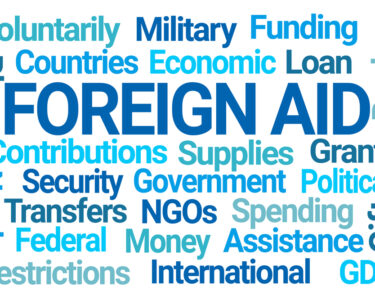A new bill, introduced by Senator Hagerty in the U.S. Senate, seeks to make significant changes to the eligibility requirements for 501(c)(3) tax-exempt organizations. The bill, titled the “Fixing Exemptions for Networks Choosing to Enable Illegal Migration Act” or the “FENCE Act,” proposes amending the Internal Revenue Code to prevent certain nonprofits from maintaining tax-exempt status if they engage in activities that support individuals unlawfully present in the United States.
What Does the FENCE Act Propose?
The FENCE Act would add a new condition for organizations seeking or maintaining 501(c)(3) status. Specifically, it would disqualify any organization that:
- Engages in a pattern or practice of providing financial assistance, benefits, services, or material support to individuals known—or reasonably should be known—to be unlawfully present in the U.S.
This amendment would apply to charitable, religious, educational, and other organizations typically eligible for tax-exempt status under section 501(c)(3) of the Internal Revenue Code.
Key Provisions of the Bill
The proposed legislation outlines several key elements:
- Prohibited Activities: Organizations that repeatedly provide aid or services to individuals who are unlawfully present in the country could lose their tax-exempt status.
- Knowledge Standard: The bill uses a “knows or reasonably should know” standard, which raises questions about how nonprofits are expected to determine an individual’s immigration status.
- Religious Exemption: The Act explicitly protects religious organizations from being forced to act against their beliefs. This means faith-based groups can continue to provide aid without violating their mission or conscience.
- No Mandatory Immigration Checks: The bill clarifies that nonprofits are not required to ask for proof of citizenship or verify immigration status unless there is reason to believe the recipient is unlawfully present.
- Immediate Effect: If passed, the FENCE Act would take effect immediately upon enactment.
Potential Impact on Nonprofits
If enacted, the FENCE Act could have far-reaching implications for nonprofits that provide humanitarian aid, particularly those serving immigrant communities. Organizations may face uncertainty about how to comply with the “reasonably should know” standard and may need to adopt new policies and procedures to avoid jeopardizing their tax-exempt status.
Critics argue that the bill could deter nonprofits from providing essential aid to vulnerable populations out of fear of losing their exemption, while supporters assert it is a necessary step to curb illegal immigration and prevent misuse of nonprofit resources.
What Comes Next?
The bill has been referred to the Senate Committee for further review. Nonprofit leaders, policymakers, and the public will undoubtedly continue to debate its potential effects on charitable work, immigration policy, and the broader nonprofit sector.
Stay tuned as the legislative process unfolds, and consider how this bill might impact your organization’s operations or the broader charitable landscape in the United States.
Ellis Carter is a nonprofit lawyer with Caritas Law Group, P.C. licensed to practice in Washington and Arizona. Ellis advises nonprofit and socially responsible businesses on federal tax and fundraising regulations nationwide. Ellis also advises donors concerning major gifts. To schedule a consultation with Ellis, call 602-456-0071 or email us through our contact form.
👇Follow more 👇
👉 bdphone.com
👉 ultractivation.com
👉 trainingreferral.com
👉 shaplafood.com
👉 bangladeshi.help
👉 www.forexdhaka.com
👉 uncommunication.com
👉 ultra-sim.com
👉 forexdhaka.com
👉 ultrafxfund.com
👉 bdphoneonline.com
👉 dailyadvice.us




